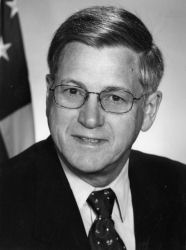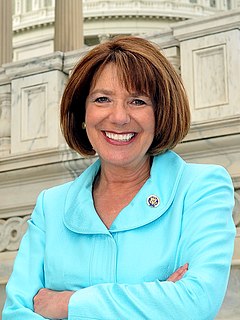A Quote by Jeff Duncan
While the Census Bureau already has a legal obligation to keep people's information confidential, we all know that in an age of cyber attacks and computer hacking that ensuring people's privacy can be difficult.
Related Quotes
The actual assertion that the Census Bureau could behave in such a way as to tilt things one way or the other way in the partisan sense, is, on the face of it, a silly charge. It's the same Census Bureau that's considered to be incompetent by some people, and then some of the same people are saying that this incompetent agency is so clever and so Machiavellian that it can design a census for partisan reasons.
The thing that has disturbed me most about the Russian hacking episode is - and the thing that surprised me most has not been the fact of Russian hacking. The cyber world is full of information gathering, you know, propaganda, et cetera. I have been concerned about the degree to which, in some circles, you've seen people suggest that Vladimir Putin has more credibility than the U.S. government. I think that's something new.
I think cyber security, cyber warfare will be one of the biggest challenges facing the next president, because clearly we're facing at this point two different kinds of adversaries. There are the independent hacking groups that do it mostly for commercial reasons to try to steal information that they can use to make money.
In terms of my conversations with [Vladimir] Putin, these are conversations that took place before the election. As I indicated, there has been very clear proof that they have engaged in cyber attacks. This isn't new. It's not unique to Russia. There are a number of states where we've seen low-level cyber attacks and industrial espionage and, you know, other behavior that we think should be out of bounds.
What we're going to do with cyber-attacks - and we have already actually started - we started well before the executive order actually was issued - is working with the private sector, determine how best to share information, because, you know, we can't help until we know that there has actually been an attempted intrusion or attack. Information-sharing piece is very important.
It ends a 40-year ban on exporting U.S. oil. It's changed - it's included in its cyber-security legislation - that says to private companies, hey, if you share with us your data on your cyber-attacks, your potential cyber-attacks, we'll give you liability protection. And they authorized a health care program for 9/11 responders for 75 years to cover the length of their lifespans.
Everybody has a hacking capability. And probably every intelligence service is hacking in the territory of other countries. But who exactly does what? That would be a very sensitive piece of information. But it's very difficult to communicate about it. Because nobody wants to admit the scope of what they're doing.































